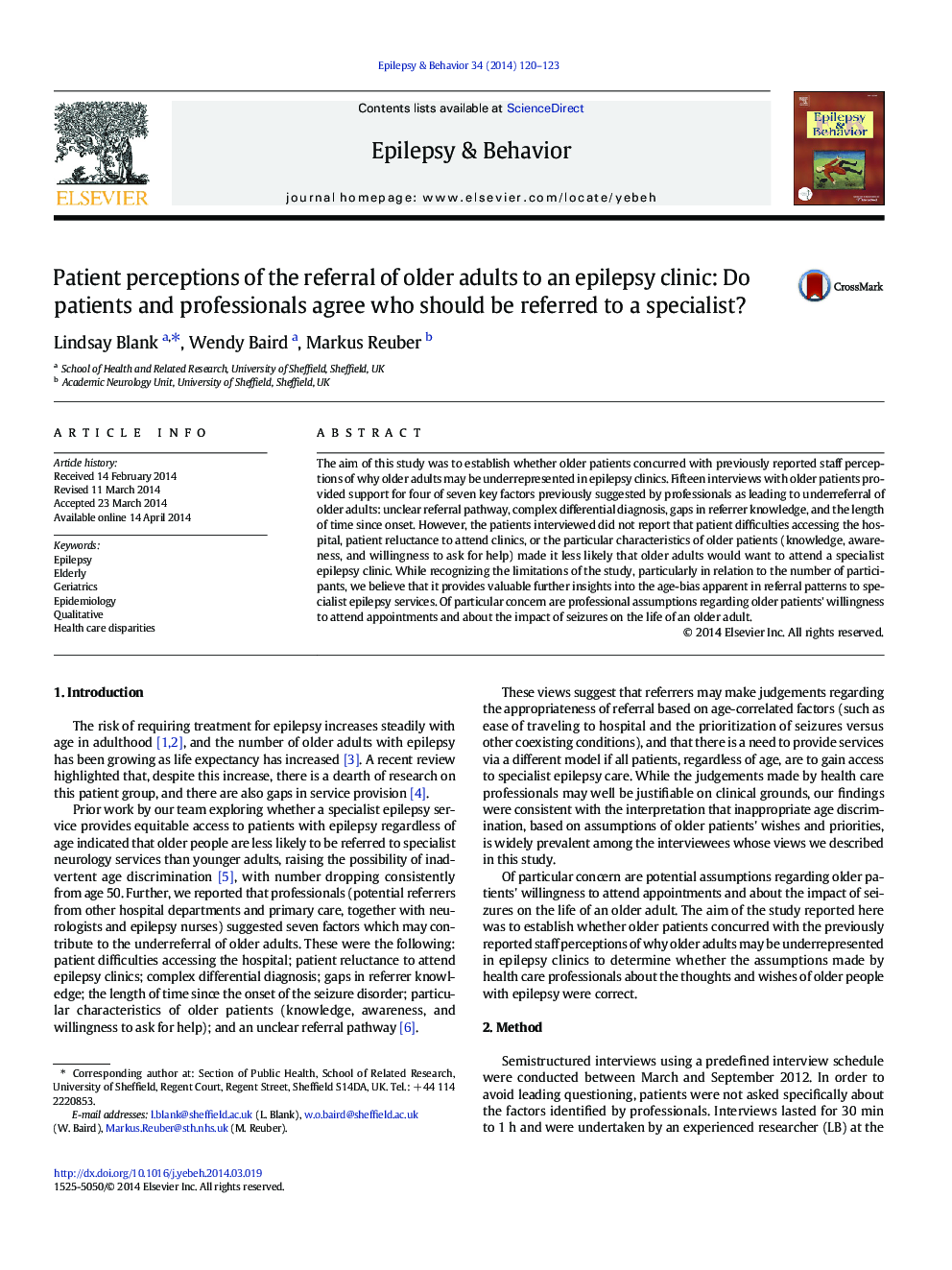| Article ID | Journal | Published Year | Pages | File Type |
|---|---|---|---|---|
| 6012361 | Epilepsy & Behavior | 2014 | 4 Pages |
Abstract
The aim of this study was to establish whether older patients concurred with previously reported staff perceptions of why older adults may be underrepresented in epilepsy clinics. Fifteen interviews with older patients provided support for four of seven key factors previously suggested by professionals as leading to underreferral of older adults: unclear referral pathway, complex differential diagnosis, gaps in referrer knowledge, and the length of time since onset. However, the patients interviewed did not report that patient difficulties accessing the hospital, patient reluctance to attend clinics, or the particular characteristics of older patients (knowledge, awareness, and willingness to ask for help) made it less likely that older adults would want to attend a specialist epilepsy clinic. While recognizing the limitations of the study, particularly in relation to the number of participants, we believe that it provides valuable further insights into the age-bias apparent in referral patterns to specialist epilepsy services. Of particular concern are professional assumptions regarding older patients' willingness to attend appointments and about the impact of seizures on the life of an older adult.
Related Topics
Life Sciences
Neuroscience
Behavioral Neuroscience
Authors
Lindsay Blank, Wendy Baird, Markus Reuber,
